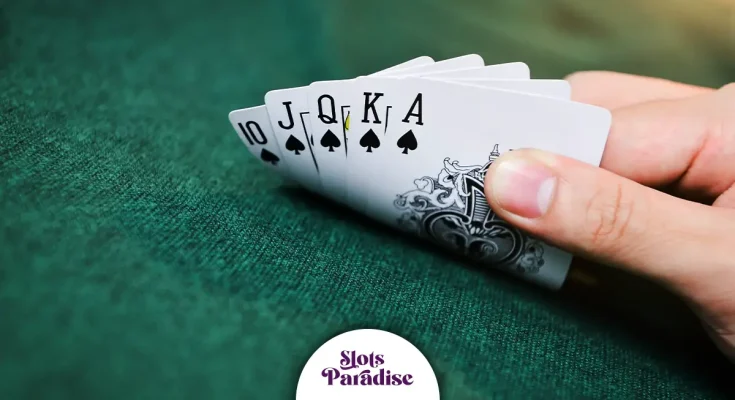When you think of poker, what comes to mind? Glamorous casinos, high-stakes bluffs, maybe a friendly game with buddies? Sure, that’s part of it. But beneath the surface of chips and cards lies a powerful, and often overlooked, mental gymnasium. Honestly, playing poker isn’t just about winning money. It’s a rigorous workout for your brain that can offer some pretty profound mental health and cognitive benefits.
Let’s dive in.
Your Brain on Poker: A Cognitive Cross-Training Session
Poker demands a unique blend of skills. It’s not just about memorizing rules or getting lucky. To play well, you have to engage multiple cognitive domains simultaneously. Think of it as cross-training for your mind.
Sharpening Critical Thinking and Decision-Making
Every single hand in poker is a puzzle. You’re dealt two cards. Then you have to process a flood of information: the community cards, your opponents’ bets, their physical tells (if you’re playing live), and the pot odds. You have to weigh risk against reward in real-time.
This constant, pressured decision-making is like a boot camp for your prefrontal cortex. You learn to make calculated choices under uncertainty—a skill that, let’s be honest, is incredibly valuable in everyday life, from navigating career moves to managing personal finances.
The Memory Muscle
A good poker player has a sharp memory. You need to remember which cards have been folded, what an opponent’s betting pattern was three hands ago, and the tendencies of the players at your table. This isn’t about rote memorization; it’s about active, working memory. You’re constantly updating and recalling information to build a narrative of the game. It’s a fantastic way to keep your memory recall agile and strong.
The Unexpected Mental Health Perks
This is where it gets really interesting. Beyond raw brainpower, poker can be a surprising ally for your psychological well-being.
Building Emotional Resilience and Tilt Control
Ah, “tilt.” Every poker player knows it. It’s that state of frustration or anger after a bad beat that causes you to play poorly. Learning to recognize and manage tilt is one of the most direct mental health benefits of the game.
Poker teaches you to sit with discomfort. You will lose with the best hand. You will make the right decision and still get a bad result. It’s inevitable. The game forces you to separate the quality of your decision from the randomness of the outcome. This builds a profound kind of emotional resilience. You learn to take punches, metaphorically speaking, and bounce back without letting emotion cloud your next move. That’s a superpower in life.
A Social Connector (Yes, Really!)
In an age of digital isolation, the social aspect of poker—even online—is a huge benefit. A regular home game creates a consistent social outlet. It’s a shared activity that fosters camaraderie, conversation, and connection. You’re engaging with people, reading social cues, and building relationships. That sense of community is a powerful antidote to feelings of loneliness.
Poker as a Practice in Mindfulness
It might sound strange, but poker can be a form of active meditation. To play well, you must be fully present. You can’t be dwelling on the last hand or worrying about the next one. You have to be right here, right now, observing the table.
This focused attention on the present moment is the very essence of mindfulness. The game trains you to quiet the mental noise and concentrate your awareness on the task at hand. It’s a flow state. When you’re in the zone, analyzing probabilities and reading opponents, the rest of the world just… fades away. That mental break can be incredibly therapeutic.
Key Cognitive Skills Honed at the Poker Table
| Skill | How Poker Develops It |
| Probability & Math | Calculating pot odds and implied odds on the fly. |
| Pattern Recognition | Spotting betting patterns and player tendencies. |
| Concentration | Maintaining focus for extended periods amidst distraction. |
| Strategic Thinking | Planning several moves ahead, like in chess. |
| Adaptability | Adjusting your strategy based on new information and different opponents. |
A Few Words of Caution: Playing Responsibly
Now, here’s the deal. We have to talk about the elephant in the room: gambling. The mental benefits we’ve discussed are tied to playing poker as a game of skill and mental challenge. It’s crucial to approach it with a healthy mindset.
Set strict limits for yourself. Only play with money you can afford to lose—think of it as paying for entertainment, like going to a movie. The moment it stops being fun, or you feel it’s impacting your finances or mental state negatively, it’s time to step away. The goal is cognitive enrichment, not financial stress.
Dealing Yourself a Better Mind
So, the next time you see a deck of cards, consider the potential. Poker is more than a pastime. It’s a complex, engaging activity that can fortify your mind, temper your emotions, and even connect you with others. It teaches you to be comfortable with uncertainty, to think critically under pressure, and to recover from setbacks with grace.
In a world that often feels chaotic and unpredictable, maybe what we need is a little more practice navigating exactly that. And a poker table, it turns out, is a pretty good place to start.




